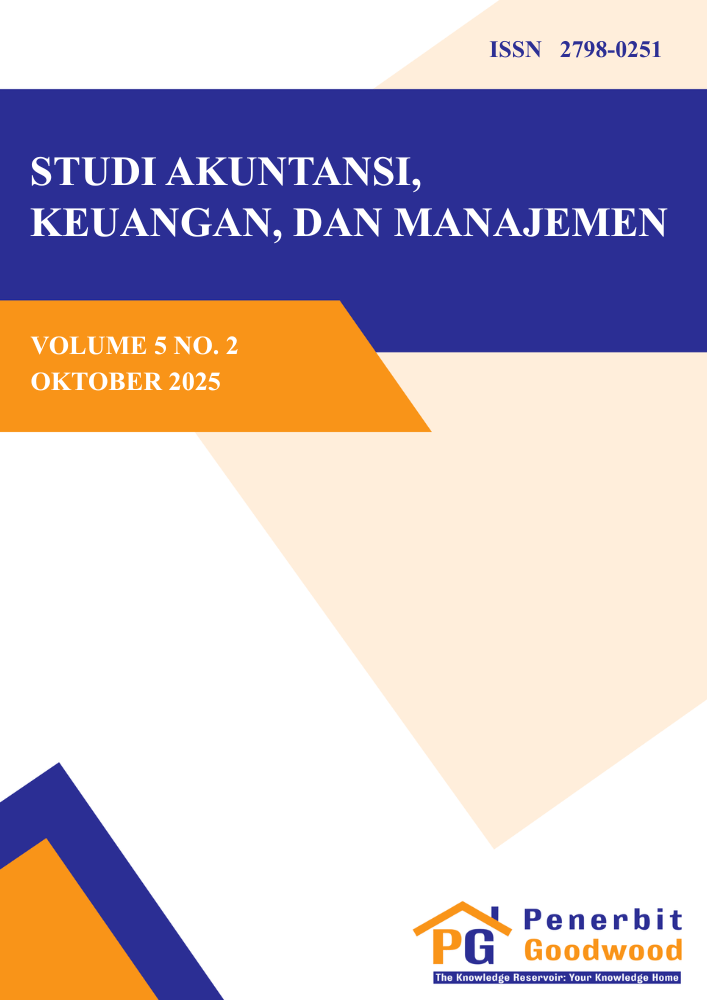Moderasi EPU pada Pengaruh NII terhadap Risiko Kredit Bank
Abstract:
Purpose: This study examines how non-interest income (NII) influences bank credit risk and how economic policy uncertainty (EPU) moderates that relationship
Methodology/approach: Using panel data on ASEAN banks and a quantitative empirical approach, we include EPU as a moderating variable and control for the Capital Adequacy Ratio (CAR), loan growth, and bank size
Results/findings: The results indicate that higher NII significantly reduces non-performing loans, yet its protective effect weakens when EPU is elevated, suggesting that policy uncertainty erodes the risk-buffering benefits of income diversification. EPU itself directly increases credit risk, exposing banks to greater vulnerability during uncertain policy climates. CAR, loan growth, and bank size also exert significant effects on credit risk. Practically, banks should be more selective in pursuing non-interest revenue streams and reinforce credit-risk mitigation when policy uncertainty rises
Conclusions: This study highlights the dual role of NII and EPU in shaping credit risk dynamics in ASEAN banks. While income diversification contributes to reducing credit risk, its effectiveness is contingent on the broader policy environment. Elevated policy uncertainty undermines the stabilizing effect of NII, thereby heightening banks’ vulnerabilities. Strengthening capital adequacy, prudent loan growth management, and strategic scaling remain essential for maintaining resilience. Policymakers and regulators should also recognize the destabilizing potential of policy uncertainty and design frameworks that foster clarity and stability in financial markets.
Limitations: Future research could incorporate additional internal bank factors, qualitative insights, regulatory changes, and digitalisation trends.
Contribution: This study enriches the empirical literature on income diversification and macroeconomic uncertainty within the ASEAN banking sector.
Downloads

This work is licensed under a Creative Commons Attribution-ShareAlike 4.0 International License.

